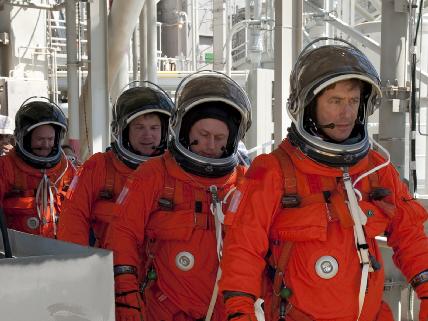Towards the end of the US manned space program, Israel is launching two experiments through the Fisher Institute, in cooperation with the Hebrew University and with the support of the Ministry of Science, two experiments * The team of researchers is headed by Dr. Eran Shanker of the Fisher Institute

Update: In preparation for the launch tomorrow evening Israel time - all teams confirm the launch.
The team of Israeli researchers, led by Dr. Eran Shankar, will send bone cell culture into space this week with the aim of learning about the mechanism of bone loss under the conditions of a lack of gravity in space and finding ways to treat people suffering from osteoporosis on Earth. The researchers also send probiotic bacteria and a solution enriched with calcium and vitamin D as one of the ways to deal with phenomena related to the immune system in space conditions.
The experiments continue the experiments that Israel launched in 2003 on the space shuttle Columbia with the late Col. Ilan Ramon, as I remember in 2003, together with the first Israeli astronaut, the late Col. Ilan Ramon, Israel launched a medical experiment into space that involved finding a formula for the production of powder Milk enriched with calcium and probiotics for use by astronauts on long-duration missions. Now, in preparation for NASA's last manned space mission, the Fisher Institute was asked to return and conduct the experiments in full. The Director General of the Ministry of Science, Menachem Greenblum, said that he is proud that it is possible for Israel, which has long sent a number of biomedical experiments into space aboard NASA's space shuttles in three different missions, to continue this important research in the latest Endeavor space mission led by D. Rabbi Eran Shankar.
The first experiment was launched in 1996 and examined the effect of the absence of gravity on bone cells. The Israeli researchers found that bone-building cells, in the absence of gravity, divide more slowly, have a different structure than normal cells, and their metabolic rate is slower. Another experiment in space was conducted in 1998 examining the effect of vitamin D derivatives on bone tissue. This is in order to reduce the phenomenon of bone loss that occurs in space. The third experiment took place during the flight of the first Israeli astronaut, the late Col. Ilan Ramon, in 2003, and was designed to test the expression of genes that affect bone building in weightless conditions.
Dr. Eran Shankar points out that the current Israeli medical research is partnered by leading researchers in their field: from the Hebrew University, Tel Aviv University and the leading hospitals, Hadassah Ein Kerem, Rambam and the Belinson Medical Center.
The Fisher Institute for Strategic Air and Space Research was founded by the Air Force Association with the aim of developing thinking and public discourse in the State of Israel in the fields of aviation and space. The Institute's activities include conducting research and publishing articles and position papers. The institute is best known for the annual international space conference in memory of the late Ilan Ramon and his team, which is held under the auspices of the institute, the Ministry of Science and the Israel Space Agency. The Fisher Institute is chaired by Maj. Gen. (resp.) Herzl Budinger, the Fisher Institute is headed by Brigadier General (resp.) Assaf Agmon.
As part of the institute, the center for aerospace medicine research operates, which maintains relations with space agencies around the world and with parallel research institutes. The people of the institute work in cooperation with leading researchers in academic institutions throughout the country. The head of the center for the research of aerospace medicine is Dr. Eran Shankar, an aviation doctor, who was trained by NASA to be a space doctor. Since the 2011s, he has served as the chief researcher of the Israeli medical and biological experiments on NASA's space shuttles. He served as the doctor responsible for those experiments in the mission of the late Col. Ilan Ramon in the "Columbia" mission and has now been chosen again by the Americans to accompany Israeli medical research in the last space shuttle mission in XNUMX.
Jeffrey Manber is one of the most well-known space project entrepreneurs in the world for over 20 years. He who connected, connected and weaved the activities of the American and Russian space industries together, was the first to develop the subject of space tourism on the Mir space station, and advised US Presidents Reagan, Clinton and Obama in the field of space. Today he heads a group that promotes international civil, commercial and private space activity.

5 תגובות
I uploaded an update
https://www.hayadan.org.il/endeavour-launch-scrubbed-2904110/
My father has a 48 hour delay in launching the Endeavor
Avi, if you have a link to any information about this experiment (preferably in English)? What is the name of the experiment at least?